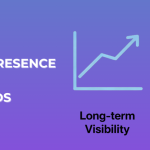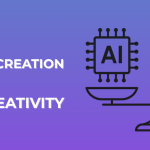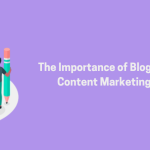Table Of Content
- 1 But Not Every Website Gets Crawled By Google. WHY?
- 2 SEO Paradox – Value vs. Visibility
- 3 Crafting Crawl-Worthy Pages – A Tactical Directive For Site Owners
- 3.0.1 (i) The Four Pillars Of E-E-A-T
- 3.0.2 (ii) The E Touch – The Cornerstone Of Valuable Content
- 3.0.3 (iii) The E Quotient: Expertise In Every Paragraph
- 3.0.4 (iv) The A Element: Authoritativeness Unquestioned
- 3.0.5 (v) The T Mandate: Forging A Trustworthy Nexus
- 3.0.6 (vi) Purpose-Driven Pages: Beyond SEO
- 3.0.7 (vii) Navigating Redirects And Navigation Frameworks
- 3.0.8 (viii) Monitoring And Improving Crawl Efficiency
- 4 Google’s ‘Crawler’s Block’ Verdict
Google keeps the web alive, with its search bots acting as doctors, always organizing the internet to help everyone find what they need.
But what if (and a serious ‘what if’) Google’s bots decide to crawl webpages – this is what we call a crawl budget.
But Not Every Website Gets Crawled By Google. WHY?
Recently, on being asked about the same issue, Google’s Search Trend Analyst John Muller replied:
“Crawl budget is really just a problem for massive sites (https://developers.google.com/search/docs/crawling-indexing/large-site-managing-crawl-budget ). If you’re seeing issues there, and your site isn’t actually massive, then probably Google just doesn’t see much value in crawling more. That’s not a technical issue.”
Potential reasons?
May be how Google perceives your website. May be your lacks content strategy or has too many URLs compared to their value.
Not all crawling issues are technical. Check the value provided.
SEO Paradox – Value vs. Visibility
SEO experts often crunch numbers and follow best practices to boost your website. But this can lead to creating low-value webpages by copying top-ranking content without adding original ideas. This raises a key question — are you aiming to please search engines or users?
Avoiding being ignored by search engines is crucial. If a page isn’t indexed, it’s like it doesn’t exist. So, every 301 redirect, URL category, or small content is vital in the SEO game. This brings us to the question — how can we ensure our pages attract visitors and keep them engaged?
Crafting Crawl-Worthy Pages – A Tactical Directive For Site Owners
At this point, you get a fresh perspective on crawling errors. But how can you make your website crawl-worthy?
(i) The Four Pillars Of E-E-A-T
Google’s Quality Rater Guidelines emphasize the importance of ‘Experience, Expertise, Authoritativeness, Trustworthiness’ when evaluating web pages. By crafting content with these qualities, you establish a strong presence online and gain credibility with search engine algorithms.
(ii) The E Touch – The Cornerstone Of Valuable Content
Creating content that search engines like involves using real experiences. This means showing how info is used, not just stating facts. Real experiences make a page more valuable. Sharing personal stories or examples helps Google see your page as helpful and interesting. By adding these to your content, you can improve how search engines rank your page.
(iii) The E Quotient: Expertise In Every Paragraph
Craft content that bespeaks a thorough understanding, stitching together a tapestry of experience and knowledge. This veneer of expertise must be interwoven not just in the topic, but in the presentation as well — clarity, depth, and the value of information.
(iv) The A Element: Authoritativeness Unquestioned
The provenance of the content is as pivotal as its substance. Cite sources, quote experts, present compelling arguments.
(v) The T Mandate: Forging A Trustworthy Nexus
Build a trusting rapport with the reader on the merit of your expertise and authority. Your webpage isn’t just a repository of knowledge; it’s a handshake, a pact of reliability. Your visitor isn’t a metric to appease but an audience to engage.
(vi) Purpose-Driven Pages: Beyond SEO
SEO shouldn’t be the goal; it’s a compass. Introspect your content — is it designed to inform, entertain, or persuade? Audience intent should preface SEO directives to ensure content that beckons the crawler also resonates with the reader.
Use 301 redirects wisely to help Google find your newest content. Check your site structure – is it clear or confusing? Remove low-traffic folders and strengthen your links for better navigation.
(viii) Monitoring And Improving Crawl Efficiency
You can use ‘noindex’ tags or improve your content quality to keep your website running smoothly. Monitoring your site’s performance and engagement can help catch any issues early on and adjust your pages for better search results.
Google’s ‘Crawler’s Block’ Verdict
Mueller advises reflection, not alarm. If Google isn’t crawling, review your content and SEO strategies. Focus on integrity and insight for a better online presence.
(i) Standing Out In A Sea Of Sitemap:
In a crowded web, standing out is key for survival. Be creative, diligent, and bold. Create engaging and discoverable content that shines in the vast data landscape.
(ii) Looking Beyond The Index:
Beyond page views, consider user ‘dwell time’ to enhance engagement. Let metrics guide content toward meaningful interactions.
(iii) The SEO Of Tomorrow:
Future SEO is not about gaming algorithms but enhancing the digital world. Blend technology and creativity for content that captivates Google and users alike, earning a valued PageRank.
That’s it! We hope that you got the clarity. So the next time you face a crawling issue, take help from this article to avoid potential pitfalls.








